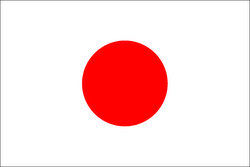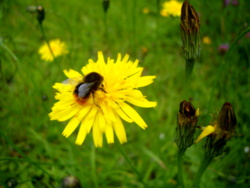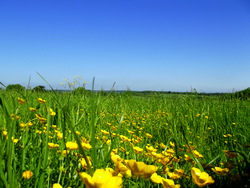 Traditional Chinese medicine has long recognised hay fever and perennial allergic rhinitis. Hay fever is simply a sub-category of allergic rhinitis, in which the allergen is pollen and therefore symptoms are seasonal. In perennial allergic rhinitis, symptoms are present year round, and can be driven by such irritants as house dust or mould spores.
Traditional Chinese medicine has long recognised hay fever and perennial allergic rhinitis. Hay fever is simply a sub-category of allergic rhinitis, in which the allergen is pollen and therefore symptoms are seasonal. In perennial allergic rhinitis, symptoms are present year round, and can be driven by such irritants as house dust or mould spores.
Hayfever
Acupuncture for hay fever is ideally given before the onset of the season, during the preceding autumn and winter. This is the time when we can address the root of the disease. Once the season has commenced, treatment inevitably has to lean more towards the manifestation ie your symptoms. Many people though do not seek out an acupuncturist until the season is underway, but we can still provide relief.
You can continue using antihistamines if you wish. If you need them to a diminishing extent, then that is one indicator of progress.
Climate change appears to be altering pollen patterns so you might feel you are reacting more severely or just earlier in the season in recent years. Warmer weather is causing birch trees to produce more pollen, and 20 to 30% of hay fever sufferers react to this pollen. Oak pollen season is starting earlier. Grass pollen is becoming problematic earlier in the year, and this affects 95% of sufferers.
Perennial Allergic Rhinitis
Turning to perennial allergic rhinitis, then because there is less seasonal variation, we treat the root and manifestation with equal emphasis. I use the expression “less seasonal variation” carefully because some patients will feel worse in autumn with the increase in mould spores, in nature or in the home. Others might feel better in summer when they can be outdoors, down at the coast say, and away from house dust or other domestic allergens.
If you would like to explore acupuncture for either of these conditions, you are welcome to call me. My usual approach is to suggest a fixed number of sessions, after which we stop and review progress. Meanwhile, a resource you may find interesting is the University of Worcester’s pollen calendar for southwest England: it might help you pinpoint which species you are reacting to.
Below you can read the results of some of the research which has been undertaken into acupuncture for allergic rhinitis. The trials vary in quality, but systematic reviews and randomised controlled trials are generally considered to provide the highest quality evidence. If you would like to read more about evidence quality, I would refer you to the British Acupuncture Council’s description of the evidence pyramid.

 Japanese university researchers report two cases of successful acupuncture treatment of post-covid loss of sense of smell. In diverse countries, the incidence of olfactory dysfunction is similar: 16% of patients in Japan two months after covid, and 13% of patients in Italy 110 days after covid. The problem has the potential to be life-threatening if people are unable to detect gas leaks or smoke from building fires.
Japanese university researchers report two cases of successful acupuncture treatment of post-covid loss of sense of smell. In diverse countries, the incidence of olfactory dysfunction is similar: 16% of patients in Japan two months after covid, and 13% of patients in Italy 110 days after covid. The problem has the potential to be life-threatening if people are unable to detect gas leaks or smoke from building fires.  Researchers in Germany have found that acupuncture helps loss of sense of smell following an upper respiratory infection, and is an effective supplementary treatment option. Sixty patients with such symptoms were recruited at the Department of Otorhinolaryngology, Technische Universität, Dresden. They were randomly assigned to receive either acupuncture or sham acupuncture, for twelve sessions at approximately two sessions per week. True acupuncture was observed to increase olfactory function in 20% of patients, which was double that observed in the sham acupuncture group. Improvements were significantly better in those patients with a shorter duration of the disorder. No adverse effects were reported during acupuncture treatment.
Researchers in Germany have found that acupuncture helps loss of sense of smell following an upper respiratory infection, and is an effective supplementary treatment option. Sixty patients with such symptoms were recruited at the Department of Otorhinolaryngology, Technische Universität, Dresden. They were randomly assigned to receive either acupuncture or sham acupuncture, for twelve sessions at approximately two sessions per week. True acupuncture was observed to increase olfactory function in 20% of patients, which was double that observed in the sham acupuncture group. Improvements were significantly better in those patients with a shorter duration of the disorder. No adverse effects were reported during acupuncture treatment. A study conducted in Hong Kong has demonstrated acupuncture can bring relief to the main symptoms of allergic rhinitis. In a three-armed trial, 96 patients aged 18 to 65, were randomly assigned to receive either acupuncture, acupuncture plus herbal moxibustion, or a place on a waiting list control group. Acupuncture was given three times a week for four weeks, making 12 sessions in total. All groups received advice on a healthy lifestyle, diet and exercise.
A study conducted in Hong Kong has demonstrated acupuncture can bring relief to the main symptoms of allergic rhinitis. In a three-armed trial, 96 patients aged 18 to 65, were randomly assigned to receive either acupuncture, acupuncture plus herbal moxibustion, or a place on a waiting list control group. Acupuncture was given three times a week for four weeks, making 12 sessions in total. All groups received advice on a healthy lifestyle, diet and exercise. Authors of a German study looking at acupuncture for hayfever have concluded that patients can significantly reduce their use of antihistamines whilst also improving their symptoms. At the start of the pollen season, 414 patients aged 16 to 45 were randomised into three groups: acupuncture plus cetirizine, sham acupuncture plus cetirizine, and cetirizine alone. The acupuncture group received 12 sessions over the eight week intervention period. All participants documented their medication use before and during the trial.
Authors of a German study looking at acupuncture for hayfever have concluded that patients can significantly reduce their use of antihistamines whilst also improving their symptoms. At the start of the pollen season, 414 patients aged 16 to 45 were randomised into three groups: acupuncture plus cetirizine, sham acupuncture plus cetirizine, and cetirizine alone. The acupuncture group received 12 sessions over the eight week intervention period. All participants documented their medication use before and during the trial.